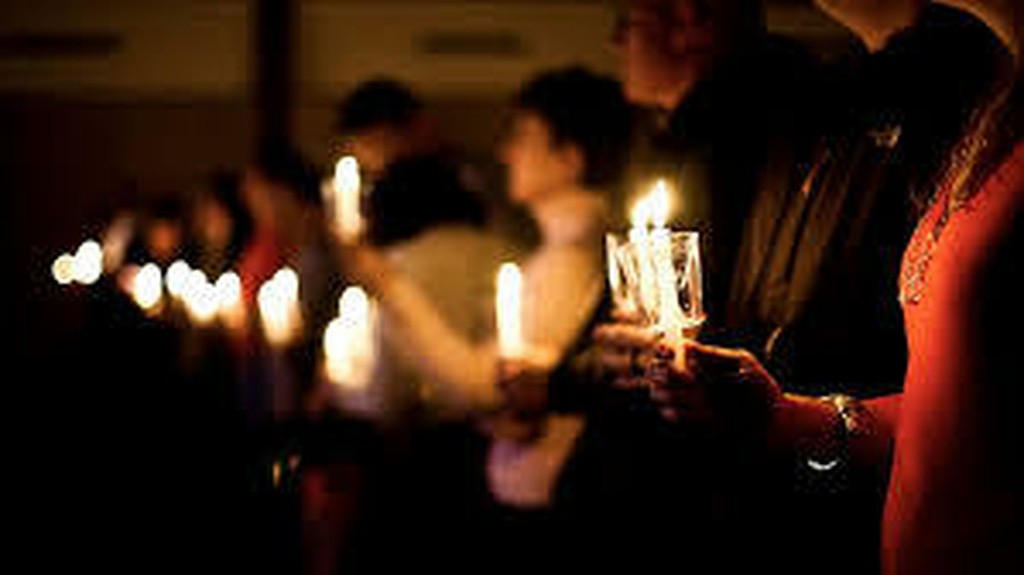
The Fulfillment of a Promise --The Beginning of Victory
One of the blessings of traditional Christmas carols is they remind us that the grace of God involves more than a personal application, for they refer to what is obvious in the New Testament – the incarnation was the pivotal event of human history. They note the implications of the birth of Jesus, not just His atonement and resurrection, but as King of kings and Lord of lords.

- Mark R. Rushdoony
We celebrate the birth of our Lord because it was the fulfillment of a promise to Adam and Eve and because it was the beginning of the victory He won for us. Yet we do not worship an infant Jesus but a risen Lord and King. My father once referred to the incarnation as God’s re-invasion of human history to set it aright. One of the blessings of traditional Christmas carols is they remind us that the grace of God involves more than a personal application, for they refer to what is obvious in the New Testament – the incarnation was the pivotal event of human history. They note the implications of the birth of Jesus, not just His atonement and resurrection, but as King of kings and Lord of lords.
In the first century, that expression could only be understood as a transcendent authority. Jesus would exercise His power to “disperse the gloomy clouds of night, and death’s dark shadows put to flight” (“O Come, O Come Emmanuel”). Jesus brings in “the realms of endless day, that the powers of hell may vanish as the darkness clears away” (“Let All Mortal Flesh Keep Silence”). Perhaps the best-known Christmas carol is “Joy to the World.” Its third verse references the reign of Jesus in His Kingdom in history:
No more let sins and sorrow grow,
nor thorns infest the ground
He comes to make his blessings flow
far as the curse is found…
This “increase of his government” spoken of in Isaiah 9:7 is also echoed in “It Came upon the Midnight Clear,”
…when the circling years
come round the age of gold;
when peace shall over all the earth
its ancient splendors fling,
and the whole world give back
the song which now the angels sing.
A lesser-known carol, “On Christmas Night All Christians Sing,” exclaims:
…when sin departs before Your grace,
then life and health come in its place;
angels and men with joy may sing,
all for to see the newborn King.
We depreciate the incarnation of God in human flesh in the person of Jesus if we in any way minimalize or “spiritualize” away any of the certain consequences of the rightful King’s re-invasion of His dominion.

- Mark R. Rushdoony
Mark R. Rushdoony graduated from Los Angeles Baptist College (now The Master’s College) with a B.A. in history in 1975 and was ordained to the ministry in 1995.
He taught junior and senior high classes in history, Bible, civics and economics at a Christian school in Virginia for three years before joining the staff of Chalcedon in 1978. He was the Director of Chalcedon Christian School for 14 years while teaching full time. He also helped tutor all of his children through high school.
In 1998, he became the President of Chalcedon and Ross House Books, and, more recently another publishing arm, Storehouse Press. Chalcedon and its subsidiaries publish many titles plus CDs, mp3s, and an extensive online archive at www.chalcedon.edu. His biography of his father will be published later this year (2024).
He has written scores of articles for Chalcedon’s publications, both the Chalcedon Report and Faith for all of Life. He was a contributing author to The Great Christian Revolution (1991). He has spoken at numerous conferences and churches in the U.S. and abroad.
Mark Rushdoony has lived in Vallecito, California, since 1978. His wife, Darlene, and he have been married since 1976. He has four married children and nine grandchildren.